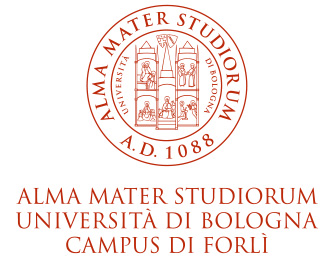Know more about the Partner and Associate Universities of MIREES
MIREES partner and associate Universities are the gateway for an in-depth understanding of East Europe and Eurasia.
Partner Universities recognise the joint diploma, participate in teaching activities, and host students’ compulsory mobility.
Associate Universities participate in teaching activities, host students’ compulsory mobility, and supervise field research.
The Department of Political and Social Sciences of the University of Bologna (Forlì Campus) boasts a unique research experience on East Europe and Eurasia. Among the main research interests, we may mention: Russia and the post-Soviet area; the Balkans and the EU enlargement policy towards South-Eastern Europe; Central and Eastern Europe; sovereignty and migration.
Vytautas Magnus University at Kaunas lies at the intersection of a historical, cultural, and geopolitical triangle set up by Poland, the Black Sea, and Russia. Kaunas, former capital of Lithuania, offers a young and intellectually dynamic environment where students can further specialise in Central European, Baltic, Russian studies — including area-relevant languages. The liberal vocation of this University enables students to broaden further their educational horizons, picking courses from across all fields and disciplines.
Member of the MIREES Programme Board: Prof. Rytis Bulota.
The University of Zagreb is the oldest and largest University in South East Europe, and contributes to over 50% of the annual research output in Croatia. Thanks to its location and a varied pool of experts in the Humanities and Social Sciences, this University is the place to be for those who are interested in Balkan studies. As a student of the University of Zagreb, one will also have the chance to attend ‘Croaticum’ — a high level, intensive course in Bosnian-Croatian-Serbian with a proven track-record of forming proficient language users.
Member of the MIREES Programme Board: Prof. Tvrtko Jakovina.
Comenius University Bratislava is the oldest and largest University in Slovakia. Conveniently located in the capitol city, it provides students with a variety of social and intellectual opportunities, and easy access to neighbouring countries. The University’s Department of Political Science is fully integrated into international research consortia and offers a wide spectrum of courses on comparative politics, democratic transition processes, European governance, as well as the history, ethnology, and languages of East and Central Europe. MIREES students will also have the chance to select courses from other departments of the Faculty of Arts — provided a working understanding of Slovak.
Member of the MIREES Programme Board: Prof. Aneta Vilagi.
Jagiellonian University counts 700 years of historical excellence. The University is located in Krakow — a highly international city and one of the hubs for student and intellectual activity in East Central Europe. By taking courses from the MAs in European Studies and International Relations, in particular, students will have the opportunity to deepen their knowledge about Visegrad countries, EU affairs, security studies, and anthropology. Jagiellonian University also offers a variety of language courses — among which Polish and Russian are of particular interest to MIREES students.
Member of the MIREES Programme Board: Prof. Marcin Zubek.
The European University Viadrina is a small, young, highly internationalised University in the heart of Central Europe. It is a practical example of European integration, as its campus develops across and literally bridges two countries: Germany and Poland. EUV offers a wide range of courses in European, Polish, and Ukrainian studies — including area-relevant languages. Moreover, thanks to the ‘B/Orders in Motion’ centre, students will have the chance to gain deeper knowledge about the re-mapping of political spaces in East Europe and Eurasia.
Member of the MIREES Programme Board: Prof. Jaroslaw Janczak.
Tbilisi State University is the oldest University in Georgia. Part of the Bologna process, it welcomes students in its dynamic, intellectually open, and supportive environment. To study at TSU is a great opportunity for those who are interested in Russian, Caucasian, and Eurasian studies at large. The courses taught within the MAs in Eurasian and Caucasian Studies, Post-Soviet Transformation, and European Studies are particularly relevant to MIREES students. Moreover, students will have the chance to perfect Russian, Georgian, and a host of other regional languages. (Note: EU students need no visa to study in Georgia.)
Member of the MIREES Programme Board: Prof. Pikria Asanishvili.
Yerevan State University is the oldest public university in Armenia. Founded in 1919, it is the largest university in the country. Here MIREES students will be able to improve their language skills in Russian and Armenian, and to explore the complex history of the South Caucaus region, and political dynamics at the crossroads between Turkey and IranYerevan State University is the oldest public university in Armenia. Founded in 1919, it is the largest university in the country. Here MIREES students will be able to improve their language skills in Russian and Armenian, and to explore the complex history of the South Caucaus region, and political dynamics at the crossroads between Turkey and Iran.
Contact Person: Alexander Markarov
The University of Graz is Austria’s second oldest and second largest university. As a modern scientific institution the University of Graz pools first-rate research and co-operations on a national as well as on an international level. In addition, almost 20% of the inhabitants of the city of Graz are students, which makes the city an El Dorado for young people. Here MIREES students will have the opportunity to join the academic community of the MA Programme in Southeast European Studies, providing with a deep understanding of history, politics, law, economics and culture in Southeast Europe.
Contact Person: Florian Bieber.
The University of Helsinki is the oldest and largest institution of academic education in Finland. It hosts the Aleksanteri Institute, one of the world’s largest and best-known centres in the field of Russian, Eastern European, and Eurasian Studies. The University of Helsinki is suitable for students interested in deepening and expanding their knowledge in such fields. Students will have the opportunity to select courses from the MA in Russian, Eurasian and East European Studies and the broader offer in ‘regional area studies.’
Contact person: Prof. Sari Autio-Sarasmo.
